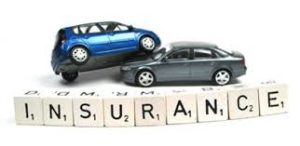04 Dec Deep Dive: Comprehensive Car insurance
If you’re unsure about what insurance you need for your car – take a sneak peak at this deep dive into Comprehensive Car Insurance to get a better understanding of what it covers and when.
Comprehensive Car Insurance Definition
Generally, comprehensive Insurance covers your car for accidental damage, malicious damage, theft, fire, flood and storm. It also covers your liability for any damage you cause to another person’s vehicle or property. Of course there are variations in each individual policy and limits for each area of coverage, it’s always a good idea to speak to us to confirm what you will be covered for. You can also speak with your insurance broker or adviser or check your policy documents to determine your exact coverage.
Is Comprehensive Car Insurance right for me?
This is our most popular car insurance with 86% of customers choosing comprehensive cover. Comprehensive car insurance offers the broadest cover for your vehicle – ensuring that you have the maximum protection should your car be involved in an incident – including if it is stolen or damaged in a fire, flood or storm.
There are a number of factors that will impact whether comprehensive car insurance is right for you. Including the age and value of your vehicle, how you would continue with your day to day activities should you find yourself without a car and your ability to pay for any damage you may cause to other people’s property in the event of an accident.
If your car is critical to your day to day activities including getting to and from work, if you have limited resources to potentially pay for any damage to third party property and/or if you have a very valuable car, comprehensive insurance is definitely something you should not overlook.
For most of us, one of these three circumstances apply, and so comprehensive car insurance is highly recommended. Of course there are some other, generally cheaper options available should the cost of comprehensive car insurance prove prohibitive to you. Some people with less valuable cars or who perhaps drive infrequently and/or do not use their cars for work my may choose to take out lesser cover options including third party property damage – where other people’s property is covered if you cause an accident, or third party fire & theft – where your car is covered if it is damaged by fire or stolen as well as any damage caused by you to another’s car.
All insurers offer slightly different covers under their comprehensive car insurance policies, some features to look out for when comparing policies are:
- Hire car
- Windscreen replacement / repair
- Modifications to your car
- New for old replacement
- Towing
What does ‘at fault’ mean?
When you are involved in an accident, based on the applicable road rules, a determination will be made as to who (if anyone) caused the accident. That is – who was it that broke the road rules which resulted in the accident occurring. This person would then be declared the ‘at fault’ driver. This determination impacts which driver’s insurance policy (if applicable) will cover the damage caused in the accident. Some policies only cover damage to other people’s property if you are declared at fault, but with a comprehensive insurance policy you will have cover for your own property too.
What is an Excess?
Whilst comprehensive car insurance will cover the majority of the costs involved in an accident where you are at fault, you may also have to pay the first portion of repair costs. This is called an excess and can vary widely from policy to policy. It means that if you are involved in an accident when you are at fault, your insurance policy will only cover costs over and above the amount of your excess per claim.
For example; if you have $5,000 damage done to your car and your excess is $500 then you will pay the $500 excess and CGU will cover the remaining $4,500 repair costs.
Costs incurred for amounts below your excess must be covered by you.
Most insurers offer variable excess rates – generally the premium for the policy will increase if you decrease your excess.


No Comments